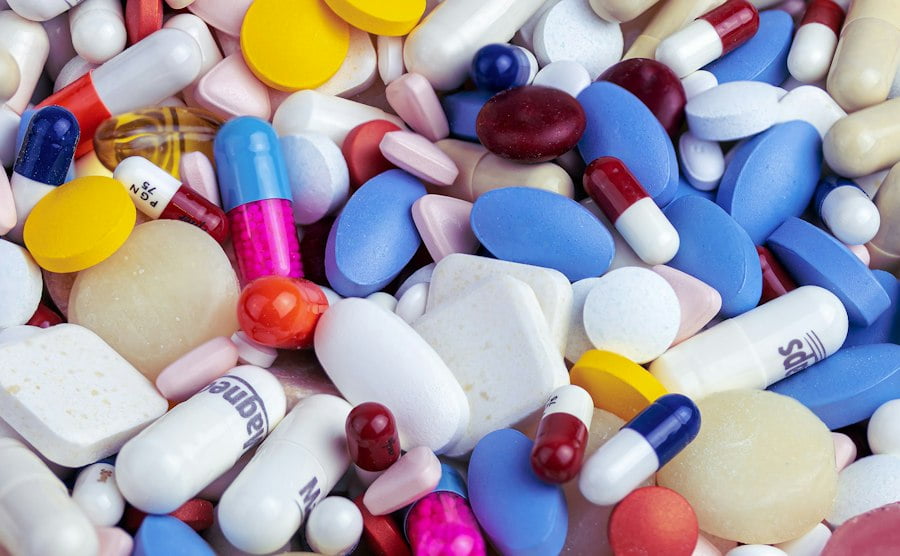
Protect Your Kidneys: Adopt These Healthy Habits for Optimal Kidney Health
Maintaining good kidney health is crucial for overall well-being. The kidneys play a vital role in the body by filtering waste products and excess fluids from the blood, regulating blood pressure, and producing hormones that help control red blood cell production and calcium metabolism. When the kidneys are not functioning properly, waste products can build up in the body, leading to various health problems. Therefore, it is important to take steps to promote good kidney function and prevent kidney disease.
Key Takeaways
- Kidney health is important for overall health and well-being.
- Drinking plenty of water is crucial for maintaining healthy kidneys.
- Maintaining a healthy weight and eating a balanced diet can also support kidney health.
- Reducing sodium intake, limiting alcohol consumption, quitting smoking, and exercising regularly are all important for kidney health.
- Regular kidney function tests can help detect any potential issues early on.
Importance of Kidney Health
The kidneys are responsible for filtering waste products and excess fluids from the blood, which are then excreted as urine. They also help regulate blood pressure by controlling the amount of fluid in the body and producing hormones that help constrict or dilate blood vessels. Additionally, the kidneys produce erythropoietin, a hormone that stimulates the production of red blood cells, and activate vitamin D, which is essential for calcium metabolism.
When the kidneys are not functioning properly, waste products can accumulate in the body, leading to a condition called uremia. Uremia can cause symptoms such as fatigue, nausea, loss of appetite, and difficulty concentrating. If left untreated, it can lead to more serious complications such as high blood pressure, anemia, bone disease, and cardiovascular disease.
Drink Plenty of Water
Staying hydrated is essential for maintaining good kidney health. Drinking an adequate amount of water helps to flush out toxins and waste products from the body through urine. It also helps to prevent urinary tract infections, which can lead to kidney infections if left untreated.
Dehydration can have a negative impact on kidney function. When the body is dehydrated, the kidneys have to work harder to concentrate urine and retain fluids. This can put a strain on the kidneys and increase the risk of kidney stones and other kidney problems.
To stay hydrated, it is recommended to drink at least 8 glasses of water per day. However, individual water needs may vary depending on factors such as age, activity level, and climate. It is important to listen to your body and drink water whenever you feel thirsty.
Maintain a Healthy Weight
| Metrics | Definition |
|---|---|
| Body Mass Index (BMI) | A measure of body fat based on height and weight |
| Waist Circumference | A measurement of the waistline that indicates abdominal fat |
| Caloric Intake | The amount of energy consumed through food and drink |
| Physical Activity | Movement that requires energy expenditure, such as exercise or daily activities |
| Body Fat Percentage | The proportion of fat in the body compared to other tissues |
Obesity is a risk factor for kidney disease. Excess weight can increase the risk of developing conditions such as high blood pressure and diabetes, which are leading causes of kidney disease. Additionally, obesity can directly damage the kidneys by increasing the workload on them and causing inflammation.
Maintaining a healthy weight is important for kidney health. Losing weight can help reduce the risk of developing kidney disease and improve kidney function in those who already have kidney problems. To maintain a healthy weight, it is important to eat a balanced diet and engage in regular physical activity.
Eat a Balanced Diet
A balanced diet is essential for promoting good kidney function and preventing kidney problems. A diet that is rich in fruits, vegetables, whole grains, lean proteins, and healthy fats provides the necessary nutrients for optimal kidney health.
Fruits and vegetables are particularly beneficial for the kidneys as they are low in sodium and high in potassium, which helps to regulate blood pressure. They are also rich in antioxidants, which help protect the kidneys from damage caused by free radicals.
Whole grains provide fiber, which helps to regulate blood sugar levels and prevent diabetes, a leading cause of kidney disease. Lean proteins such as fish, poultry, and legumes are a good source of essential amino acids without adding excessive amounts of saturated fat.
Healthy fats found in foods such as avocados, nuts, and olive oil can help reduce inflammation and promote heart health, which is important for kidney health.
Reduce Sodium Intake

Excessive sodium intake can have negative effects on the kidneys. High levels of sodium in the blood can increase blood pressure and put a strain on the kidneys. Over time, this can lead to kidney damage and increase the risk of developing kidney disease.
To reduce sodium intake, it is important to limit the consumption of processed and packaged foods, which are often high in sodium. Instead, opt for fresh, whole foods and cook meals at home using herbs and spices to add flavor instead of salt. Reading food labels can also help identify high-sodium products and make more informed choices.
Limit Alcohol Consumption
Excessive alcohol consumption can harm the kidneys. Alcohol is a toxin that can cause inflammation and damage to the kidneys. It can also increase blood pressure and lead to dehydration, both of which can negatively impact kidney function.
To limit alcohol intake, it is recommended to follow the guidelines set by health organizations. For men, this means consuming no more than two standard drinks per day, while for women, it means consuming no more than one standard drink per day. It is also important to drink alcohol in moderation and avoid binge drinking.
Quit Smoking
Smoking is a risk factor for kidney disease. The toxins in cigarette smoke can damage blood vessels and decrease blood flow to the kidneys, leading to kidney damage. Smoking can also increase blood pressure and reduce the effectiveness of medications used to treat kidney disease.
Quitting smoking is important for kidney health. It can help slow down the progression of kidney disease and reduce the risk of developing other complications such as cardiovascular disease. There are various resources available to help individuals quit smoking, including support groups, counseling, and medications.
Exercise Regularly
Regular exercise is beneficial for kidney health. It helps to maintain a healthy weight, reduce blood pressure, improve blood sugar control, and increase overall cardiovascular fitness. All of these factors contribute to good kidney function and reduce the risk of developing kidney disease.
Engaging in moderate-intensity aerobic exercise for at least 150 minutes per week is recommended for overall health. This can include activities such as brisk walking, cycling, swimming, or dancing. Strength training exercises that target major muscle groups should also be included at least twice a week.
It is important to consult with a healthcare professional before starting an exercise program, especially if you have any underlying health conditions or concerns.
Get Regular Kidney Function Tests
Regular kidney function tests are important for monitoring kidney health and detecting any potential problems early on. These tests can help identify changes in kidney function and determine the appropriate course of action to prevent further damage.
The two most common tests used to assess kidney function are blood tests and urine tests. Blood tests measure the levels of waste products such as creatinine and urea nitrogen in the blood, while urine tests measure the amount of protein and other substances in the urine.
It is recommended to discuss with a healthcare professional about how often you should get tested based on your individual risk factors and medical history.
Taking care of your kidneys is essential for overall health and well-being. The kidneys play a vital role in filtering waste products, regulating blood pressure, and producing hormones that are important for various bodily functions. By staying hydrated, maintaining a healthy weight, eating a balanced diet, reducing sodium intake, limiting alcohol consumption, quitting smoking, exercising regularly, and getting regular kidney function tests, you can promote good kidney function and reduce the risk of developing kidney disease. Remember, prevention is key when it comes to kidney health.
FAQs
What are the kidneys and what do they do?
The kidneys are two bean-shaped organs located on either side of the spine, just below the rib cage. They filter waste and excess fluids from the blood, which are then excreted as urine.
What are some healthy habits for kidney health?
Some healthy habits for kidney health include staying hydrated, eating a balanced diet, exercising regularly, managing blood pressure and blood sugar levels, avoiding smoking and excessive alcohol consumption, and getting regular check-ups with a healthcare provider.
How does hydration affect kidney health?
Staying hydrated is important for kidney health because it helps to flush out waste and toxins from the body. Dehydration can lead to kidney damage and increase the risk of kidney stones.
What foods are good for kidney health?
Foods that are good for kidney health include fruits and vegetables, whole grains, lean proteins, and low-fat dairy products. It is also important to limit sodium, sugar, and saturated fats.
How does exercise benefit kidney health?
Regular exercise can help to improve kidney function and reduce the risk of kidney disease. It can also help to manage blood pressure and blood sugar levels, which are important for kidney health.
What are some common causes of kidney disease?
Common causes of kidney disease include diabetes, high blood pressure, family history of kidney disease, and certain medications or toxins. It is important to manage these risk factors to prevent kidney damage.


















